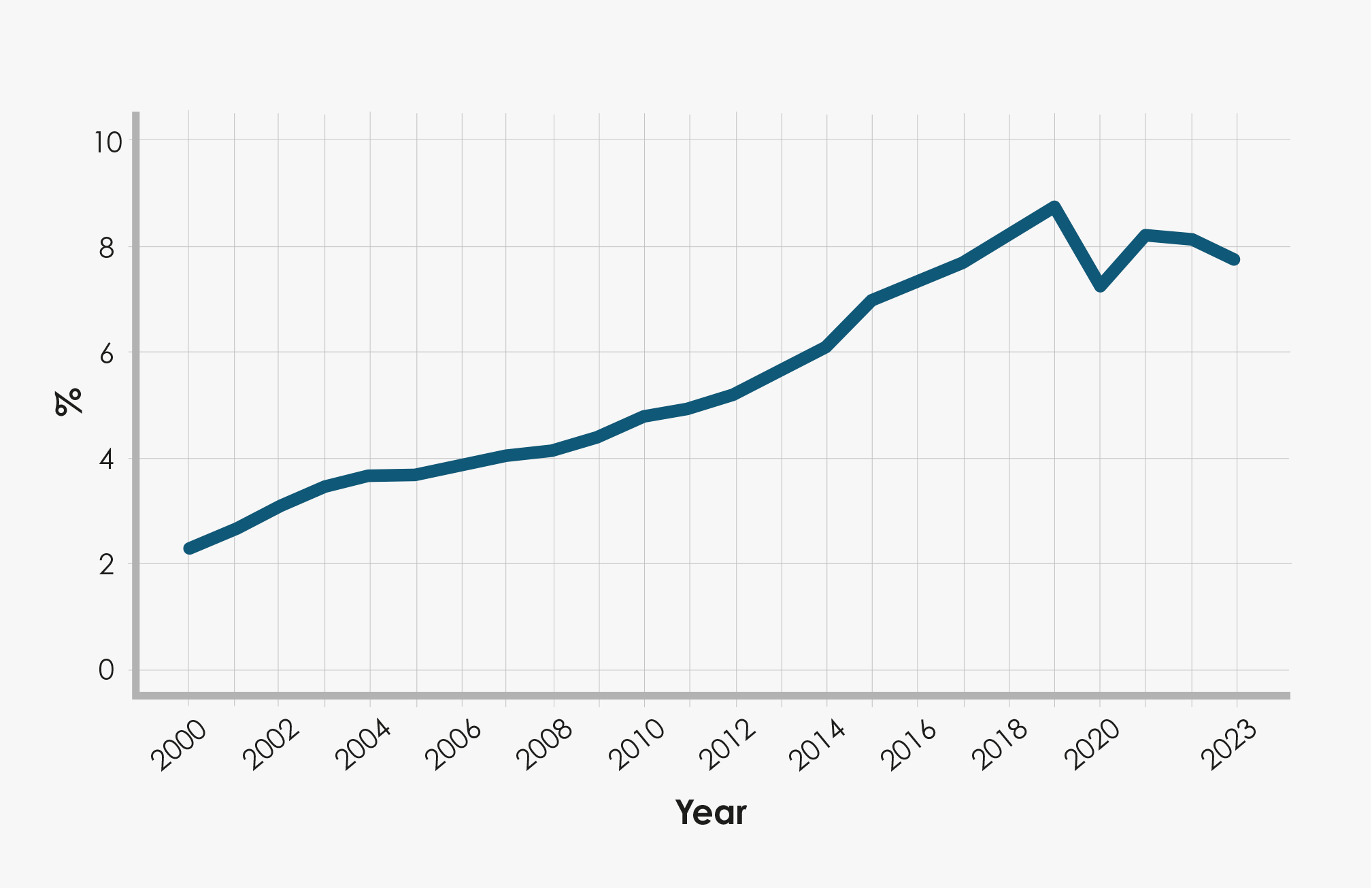Briefing: Understanding drivers of recent trends in young people’s mental health
An overview of research exploring reasons for the decline in mental health among 14 to 24-year-olds in England.
This paper provides an overview of research commissioned by Youth Futures Foundation and carried out by a team from the University of Manchester and UCL examining the drivers of the decrease in mental health among young people.
Unlike previous efforts, this research takes a broader approach by evaluating multiple potential drivers of worsening youth mental health through data analysis and literature review. In consultation with experts in psychology, psychiatry, education, epidemiology, and economics, ten factors were identified and grouped into three categories: increasing risk, declining resilience, and changing reporting. Analyses using Understanding Society survey data focused on assessing evidence for changes in resilience and reporting.
The briefing presents key findings and shares implications for policy.
Mental health symptoms among young people increased substantially from around 2010-2012, particularly low mood and anxiety.
 Proportion of young people aged 14-24 in England with a presentation to primary care for a mental health problem from 2000 to 2023
Proportion of young people aged 14-24 in England with a presentation to primary care for a mental health problem from 2000 to 2023
This research provides further evidence that the increase in presentations of young people with a mental health problem (or decline in young people’s mental health) is real – and not merely a result of increased symptom recognition, greater awareness, overdiagnosis, or reduced resilience.
Out of ten theories considered, several emerged as likely contributors to these trends:
The research further reinforces the need for mental health to be prioritised and for preventative solutions that bring together health services, education, employers, civil society and other stakeholders. Investment in young people’s mental health should continue to focus on prevention and early intervention.
This research highlights the importance of employment conditions to young people’s mental health. The Government’s employment rights agenda (Make Work Pay) should incorporate an explicit impetus to improve mental health through improving worker’s rights. As the Youth Guarantee develops, central and local government should be conscious of the quality of work being offered to young people through the Guarantee, including in contracted hours, quality of work and wages.
The research highlights the need for a coordinated, comprehensive youth offer. As the Government rolls out Young Futures Hubs, equal weight should be given to ensuring all young people have access to trusted adult relationship and support services. In developing a National Youth Strategy, investment should be made in youth services, which is both a wellbeing imperative and an economic strategy – connecting young people to support, trusted adults, and positive futures.
“Youth services are more than support – they are our safety nets. They catch us before we fall, they build us before we break, they walk with us through the mess, through the healing and into growth. It’s that trusted person who listens without judgement and who sees our potential even when we can’t. For me, that person didn’t always wear a suit or sit behind a desk – sometimes they were a youth worker equipped with the relevant training who simply took time to as ‘how are you, like really?’”
DAZO - FVG ambassador
Next steps
This report demonstrates employers’ role in young people’s ability to thrive at work and be retained, and we know we need to understand better what works. That’s why we are developing a series of landmark research trials to understand what works in the recruitment and retention of young people by testing interventions with employers.
Young people consistently tell us that good work with secure hours and income is among their top priorities. That’s why, in partnership with Workwhile, we are working with marginalised young people to co-create a definition and better understanding of ‘good work’ that is rooted in their lived expertise and designed to be clear, actionable and accessible to both employers and policymakers.